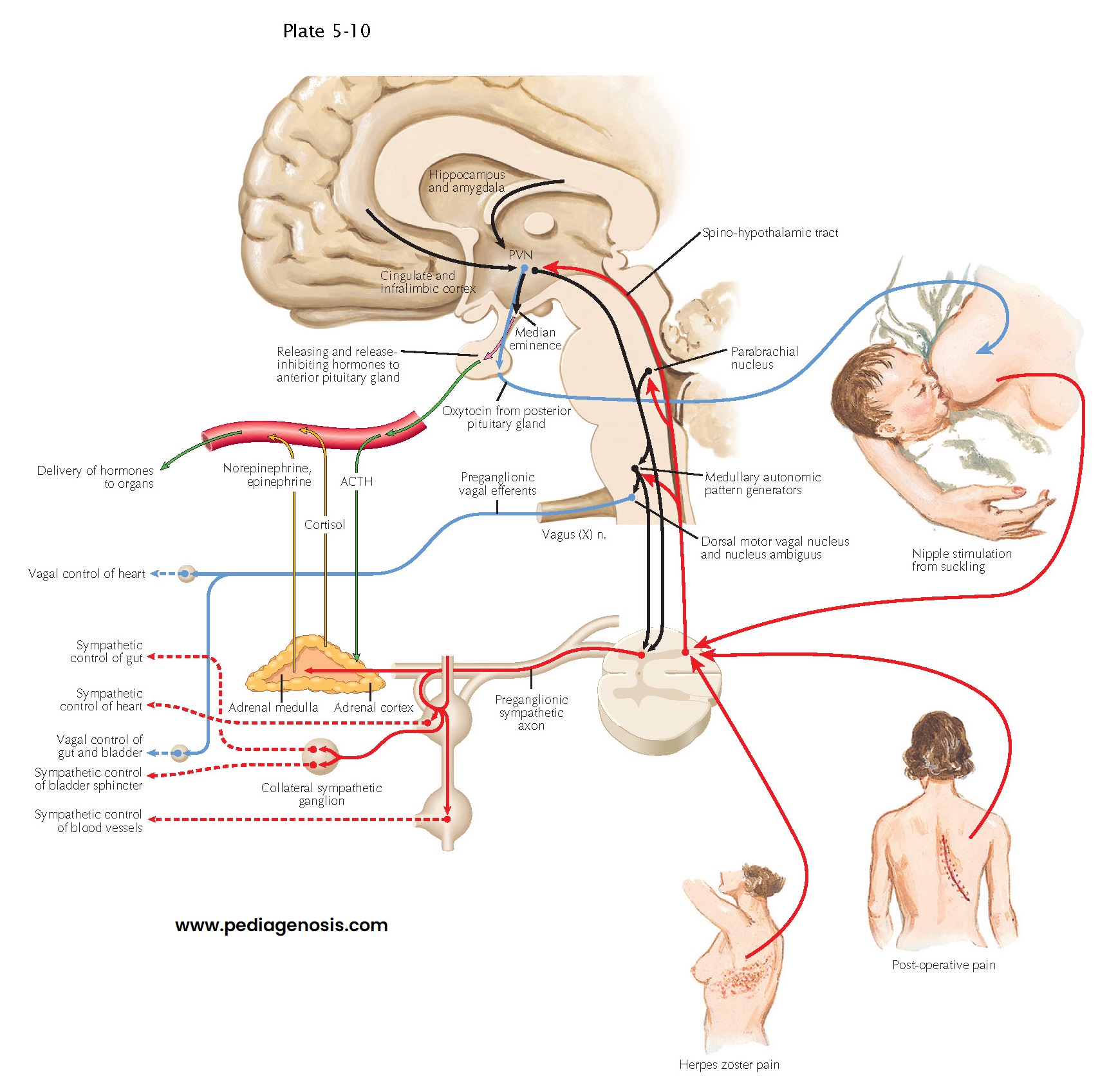Somatosensory Inputs to the Hypothalamus
The somatosensory system
provides a major source of direct inputs to the hypothalamus. For many years it
was thought that the somatosensory system primarily fed through the thalamus to
the cerebral cortex and that sensory inputs to the hypothalamus must be relayed
from the cortex. However, in 1980, it was discovered that some axons from the
ascending somatosensory pathways directly reach the hypothalamus. These inputs
originate from somatosensory neurons in the spinal and trigeminal dorsal horn.
Many of these neurons are concerned with painful stimuli. These may be used in
orchestrating emotional responses, such as anger, fight, or flight in response
to a physical injury. On the other hand, they may be important stimuli for the
underlying autonomic and endocrine responses associated with pain, such as
elevation of blood pressure and heart rate, or secretion of cortisol.
 |
| CONTROL OF HYPOTHALAMUS BY SENSORY INPUTS |
Somatosensory inputs are also important in sexual behavior. Neurons in the preoptic area promote erection in males, and nerve cells in the ventromedial nucleus of the hypothalamus can potently drive sexual behaviors, including mounting postures in males and receptive postures in females. The neurons that produce these responses are, in turn, driven by a range of visual, olfactory, and tactile stimuli. In some species, ovulation is also triggered by sexual somatosensory stimuli (such as vaginal stimulation).
Another
hypothalamically mediated response that is dependent upon somatosensory input
is the milk let-down reflex during breastfeeding. Breast milk production is
stimulated by prolactin, but the release of the milk requires somatosensory
stimulation as well. The infant suckling at the breast causes sensory input
that reaches the oxytocin neurons in the paraventricular and supraoptic nuclei
in the hypothalamus. These neurons fire in bursts, which causes them to release
oxytocin into the circulation from their axon terminals in the posterior pituitary
gland. The oxytocin, in turn, causes milk to flow from the breast.
In each of these examples, autonomic, endocrine, and behavioral responses must be coordinated, the hallmark of a hypothalamically mediated behavior. The integration of these responses in each case depends upon somatosensory input that is delivered directly to the hypothalamus.




